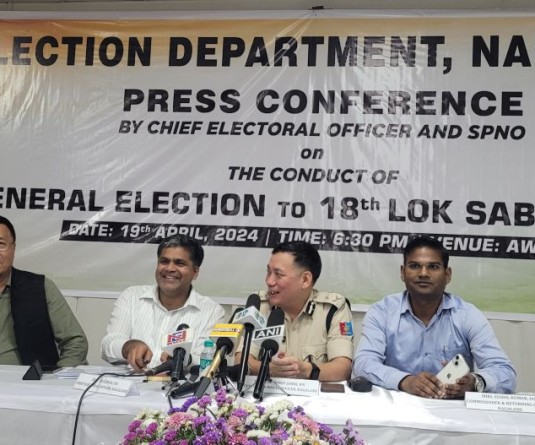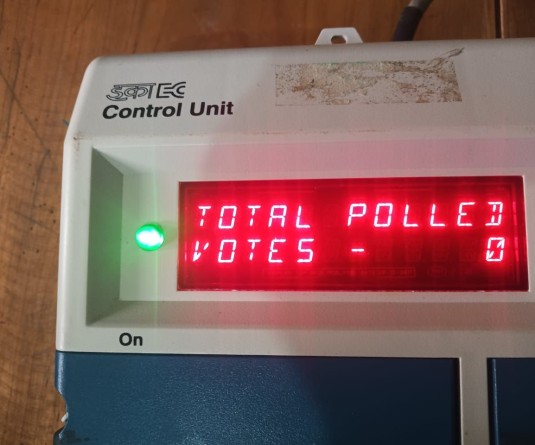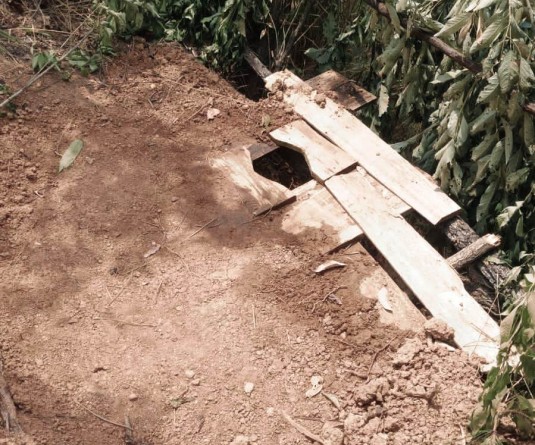
Dimapur, January 31 (MExN): The NSCN (IM) observed its 37th Raising Day at its Council Headquarters, Hebron, Dimapur on January 31. On the occasion, Kilo Kilonser Rh. Raising recounted the signing of the Shillong Accord on November 11, 1975 and the subsequent formation of the NSCN on January 31, 1980.
“With the signing of the Shillong Accord on 11th November 1975, the future of the Nagas was placed in a very dangerous situation of subjugation and annexation by the Indian state,” Raising stated during his speech which was made available to the media.
“In keeping with the spirit and letter of the Yezhabo, Th. Muivah, the then General Secretary of NNC convened a national assembly on 16th August 1976 as the President A.Z. Phizo was in London and Vice President Imkong Meren was too sick to be in the field. Imkong Meren sent message of his inability to rejoin after his release from jail saying, ‘I am too old to continue my service in the hard life of the national struggle,’” Raising recalled.
“The assembly condemned the accord as an act of treason” Raising stated before adding, “It is a fact that the accord sharply divided NNC into two camps: those who upheld the accord and those who were against it.”
“Isak Chishi Swu and Th. Muivah along with their cabinet members were arrested on fabricated grounds and detained in military custody to be executed,” he recalled but pointed to an act of providence. “It was through the intervention of Col. Kholi that our two leaders were saved from the hardliners of the military regime,” the Kilo Kilonser stated.
Raising recounted the meeting at Lao village in which S.S. Khaplang was made President of Federal Government of Nagaland. Pointing to the logic that a government formed by a military meeting is but a military government, and not a popular government, the senior NSCN functionary stated that soon after assumption of office, Khaplang met Isak and Muivah who were in the military custody at Hashik village. “After a long interaction with Isak and Muivah, he (Khaplang) was fully convinced of the fact that NNC had failed and Nagas could no longer continue their movement under the banner of NNC. He also realized that his government was not a popular government. In light of all these facts he took all the necessary steps to protect Isak and Muivah,” Raising recalled.
Narrating the series of events that followed, Raising stated that in the first week of January 1980, Khaplang convened a national workers' conference and in that meeting announced the unconditional release of Isak and Muivah.
Khaplang declared that he would step down from the office, as he did not represent popular government, so Brig. Thungbo, the then commander-in-Chief of the Naga Army, took up the charge of the government as a caretaker and Khasui Longvah was made the pro tem speaker to preside over the meeting, Raising recounted.
“After a long deliberation on the formation of a new organization the house unanimously decided to form NSCN to be approved by the national assembly. And it was on this day the 31st January 1980 where the national assembly at Tonou approved NSCN and mandated it the national trust. Hence, NSCN is the authentic political organization of the Naga people, not a faction as projected by the enemies of the Nagas,” the Kilo Kilonser of the NSCN maintained. Asserting that “Nagas were a strong and formidable force when they were living organized under the banner of NNC,” Raising however, argued that the Naga people were left like an orphan following the signing of the Shillong Accord. “And the reality is that Naga politics does not end with NNC and the Shillong accord. NNC was formed by the Nagas for the Nagas and not vice versa and therefore, it will cease to be the organization of the Nagas the day it betrays the trust of the Nagas,” he contended.
Insisting that NSCN is a recognized entity which even India recognises, Raising pointed to the NSCN being a member of the Unrepresented Nations and People's Organization (UNPO), adding that the UNPO had recognized the sovereign right of the Nagas in its general assembly.
He also pointed to the NSCN being a member of the 'Geneva Call', the 8 consultative meetings the NSCN held with the Naga people, the support it received from Parliamentarians for National Self Determination (PNSD), a London based organization, and the Naga International Support Center, as signs of its recognition and strong support base. The Kilo Kilonser also recalled I.K. Gujral, the then Prime Minister of India, and Chairman Isak Swu announcing the cease-fire agreement in the Indian Parliament and in the general assembly of the UNPO respectively.





